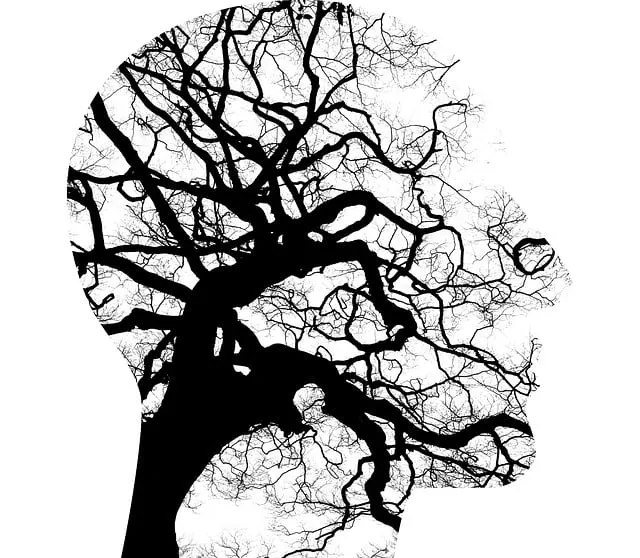Colorado Springs, according to Kaiser healthcare data, faces rising demand for mental wellness support, with common issues including depression, anxiety, and substance use disorders, exacerbated by unique challenges like high altitude stress and outdoor activity-related injuries. To address these needs, Kaiser offers Mental Illness Stigma Reduction Efforts and Social Skills Training, combining evidence-based practices like cognitive behavioral therapy (CBT) and personalized guidance. Their strategic approach includes Confidence Boosting techniques, Mental Wellness Journaling Exercises, and Mental Health Awareness workshops, improving client satisfaction and outcomes. Evaluation methods involve regular check-ins, pre/post-assessments, and feedback to refine programs, ensuring they remain effective and aligned with best practices in mood management for Colorado Springs residents.
“Colorado Springs, like many regions, faces challenges in addressing mental wellness. This article explores how Kaiser can leverage Mental Wellness Coaching Programs to enhance its services in Colorado Springs and beyond. We delve into three crucial aspects: assessing the local need for mental health support, designing effective coaching strategies tailored to Kaiser’s context, and implementing measurable impact assessments to ensure continuous improvement. Understanding these components is essential for Kaiser to provide impactful mental health care.”
- Assessing the Need: Understanding Mental Health Challenges in Colorado Springs and Beyond
- Designing Effective Coaching Programs: Strategies for Kaiser to Implement
- Implementation and Impact: Measuring Success and Ensuring Continuous Improvement
Assessing the Need: Understanding Mental Health Challenges in Colorado Springs and Beyond

Colorado Springs, like many urban areas across the nation, faces a growing demand for mental wellness support. According to recent studies and data from Kaiser (one of the major healthcare providers in the region), the city has seen an increase in individuals seeking help for various mental health conditions, including depression, anxiety disorders, and substance use disorders. Beyond these common challenges, Colorado Springs also grapples with unique issues such as high altitude stress and outdoor activity-related injuries that can impact mental resilience.
Understanding these local needs is crucial when designing mental health education programs and coaching initiatives. For instance, reducing the stigma associated with mental illness (Mental Illness Stigma Reduction Efforts) through community outreach and awareness campaigns can encourage more people to seek assistance. Similarly, focusing on developing social skills through training (Social Skills Training) can empower individuals to navigate challenging situations and foster supportive relationships, ultimately contributing to improved mental wellness.
Designing Effective Coaching Programs: Strategies for Kaiser to Implement

At Kaiser in Colorado Springs, developing effective mental wellness coaching programs requires a strategic approach that combines evidence-based practices with tailored guidance. To ensure success, Kaiser should integrate Confidence Boosting techniques into their coaching curriculum, leveraging techniques like cognitive behavioral therapy (CBT) to help clients challenge negative thought patterns and build resilience. Encouraging regular Mental Wellness Journaling Exercises can provide structured reflection opportunities, allowing individuals to process emotions, track progress, and cultivate self-awareness—all vital components for sustained mental wellness.
Furthermore, Kaiser should offer Mental Health Awareness workshops to educate both coaches and clients on common mental health issues, reducing stigma and promoting early intervention. By combining these strategies, Kaiser can create dynamic coaching programs that empower individuals to take charge of their mental well-being, ultimately improving overall client satisfaction and outcomes in Colorado Springs.
Implementation and Impact: Measuring Success and Ensuring Continuous Improvement

In implementing mental wellness coaching programs, such as those offered by organizations like Kaiser in Colorado Springs, measuring success is paramount. This involves setting clear objectives and utilizing robust evaluation methods to track participant progress. Regular check-ins, pre-and post-assessments, and feedback sessions can provide valuable insights into the program’s effectiveness. By collecting quantitative data (like changes in symptom severity) and qualitative feedback (through Mental Wellness Journaling Exercises), coaches can identify areas of improvement and ensure tailored guidance for each individual.
Continuous improvement is a key aspect of successful coaching. Regularly reviewing program outcomes allows for the refinement of strategies, incorporating new research on crisis intervention techniques, and adapting to evolving participant needs. This iterative process ensures that the coaching programs remain relevant, effective, and aligned with best practices in mood management, ultimately enhancing the overall mental wellness of participants.
In light of the growing importance of mental wellness, especially in communities like Colorado Springs where access to services is a pressing issue for many, Kaiser’s development of mental wellness coaching programs offers a promising solution. By implementing effective strategies as outlined in this article, Kaiser can significantly enhance its mental health support. The success of these programs will be measured through continuous improvement and evaluation, ensuring that individuals in Colorado Springs and beyond have access to the resources they need for better mental health outcomes.



